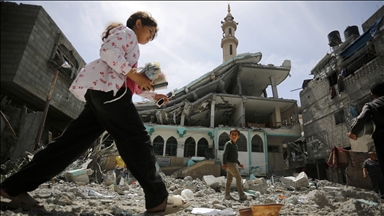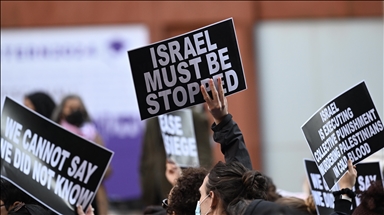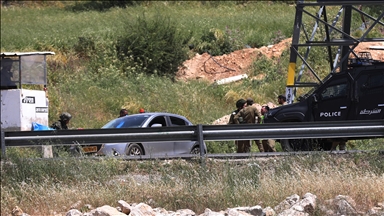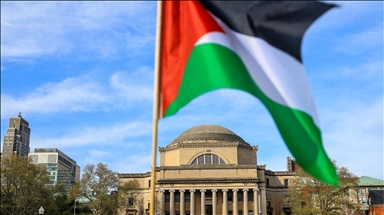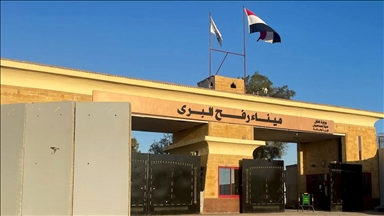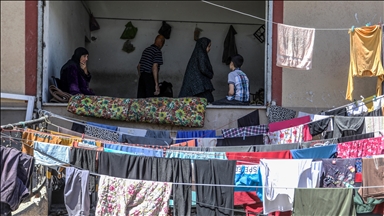Bedouin decry Israeli 'crime' after village demolition
Palestinian man is killed after hundreds of heavily-armed Israeli police storm Bedouin village, demolish homes
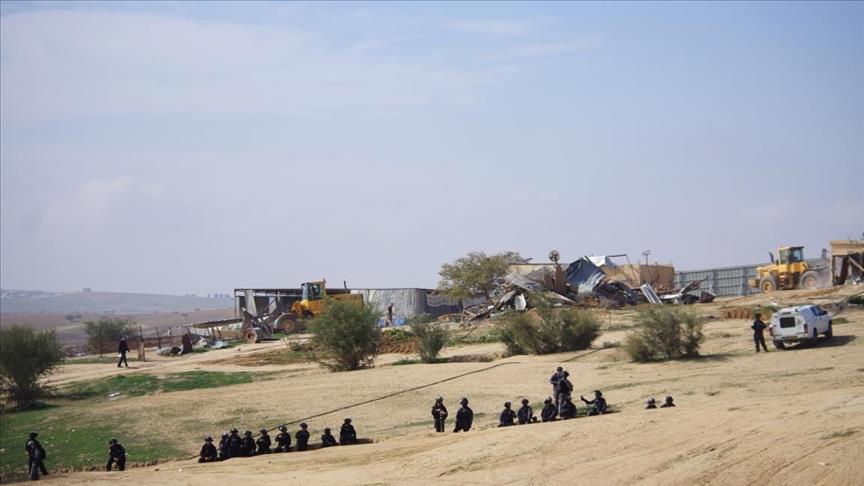
By Kaamil Ahmed
UMM AL-HIRAN, Israel
The roof of 100-year-old Musa Hussein Abu Al-Qiyan’s home was lined with heavily armed police -- and his living room filled with more -- in the chaos of Wednesday’s early hours when Israeli police stormed his village to demolish five homes.
From 4:00 a.m. local time he remained trapped in the living room, curled up under a fleece blanket and surrounded by police, while his son, Yaqoub, a 47-year-old teacher at a local school for Bedouin children, was shot dead after police claimed he had attacked them with his car.
An Israeli police officer was also killed in the dawn raid on Umm al-Hiran, a Bedouin village in Israel’s southern Negev Desert, where the state has ordered several homes destroyed to make way for Jewish-only housing projects.
According to locals, hundreds of policemen stormed the village, firing teargas and foam-coated bullets at residents who had just been sleeping.
Isaac Kate Rose, an activist who stayed in the village overnight ahead of the planned demolition, told Anadolu Agency that dozens of Israeli police vehicles had approached the village on Wednesday morning.
"Within minutes, teargas was being fired in large quantities while stun grenades were used to disperse any crowd that might have gathered," Rose said.
"There wasn’t time for a response to be organized," he added.
-'War'
Rabbi Arik Ascherman, co-founder of Rabbis for Human Rights, an NGO, described the scene as "nothing less than a war".
Among those injured was Ayman Odeh, an Arab-Israeli member of the Knesset (MK), Israel’s parliament, who was struck in the back with a sponge-coated bullet, according to Ascherman and other eyewitnesses.
Ahmad Tibi, who was among several Arab-Israeli MKs barred earlier from entering the village, said negotiations aimed at reaching a compromise had gone on late into Tuesday night.
"The Israeli police and state are dealing with us as enemies, not citizens," he asserted. "We’re demanding an inquiry committee -- an official one -- and international protection for the national Arab minority."
Tibi pointed to recent threats by Israeli Prime Minister Benjamin Netanyahu to increase the pace of home demolitions following an Israeli court order to evacuate Amona, an illegal Jewish settler outpost in the occupied West Bank.
Police eventually closed off all roads leading to the village and blockaded homes that by noon had been completely demolished.
In a statement, Israel’s Land Authority said the demolition orders against the village had been issued because the homes had been built without permission -- a position supported by Israel’s Supreme Court when it rejected an appeal in 2016 lodged by village residents.
-'We are citizens'
The Arab High Follow-Up Committee, which represents Palestinian citizens of Israel, has called for a general strike on Thursday to protest the village’s demolition.
In 1952, and again in 1956, residents of Umm al-Hiran were relocated by the Israeli state. Many have refused an offer to be relocated to the nearby Bedouin town of Hura.
"This is a crime," said Hassan Abu Ali, a village resident who watched the demolition from the local mosque. "A crime unknown in any country or the world."
As the bulldozers left the flattened village, Bedouin women congregated in the rubble to wail in mourning for the slain teacher, Yaqoub.
They scornfully dismissed the suggestion -- made in the official police report -- that Yaqoub had been linked to the Daesh terrorist group.
Yaqoub’s brother, who had remained with their father throughout the demolition operation, was also angered by the suggestion, saying his family adhered to a simple religious regimen, based largely on fasting and prayer.
His family, he said, had not been involved in any agitation against the police, but were focused instead on education -- Yaqoub, he noted, had been studying for a PhD.
"We are citizens," he said, looking through his pockets for his Israeli identity card. "Why do they [the Israeli authorities] act like they do in the [occupied] West Bank?"
Anadolu Agency website contains only a portion of the news stories offered to subscribers in the AA News Broadcasting System (HAS), and in summarized form. Please contact us for subscription options.


